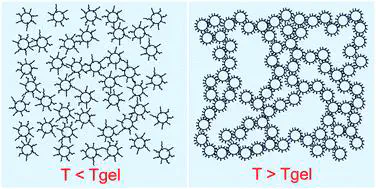Use of RAFT macro-surfmers for the synthesis of transparent aqueous colloids with tunable interactions

Abstract
We propose a new method to produce fluorinated nanoparticles (NPs) based on ab initio reversible addition–fragmentation chain transfer (RAFT) emulsion polymerization without the use of toxic surfactants. NP size, surface charge, and chemistry can be controlled via the adoption of different macromolecular transfer agents produced via RAFT polymerization of amphiphilic monomers. Thanks to this versatility, interparticle interactions can be easily tuned by changing solvent composition and temperature. In addition, the refractive index and density of the solvent can simultaneously match those of the NPs by adding sodium polytungstate, an organic salt widely used for density gradient centrifugation. These colloids may be used as model systems for the study of self-assembly and aggregation in aqueous media when optical methods are required.